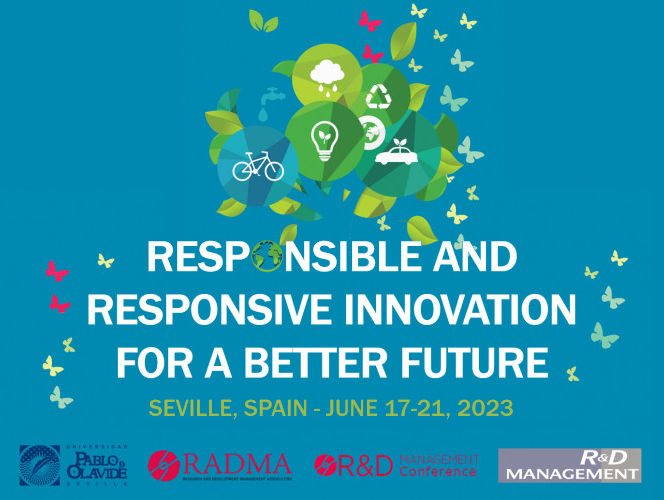There will be an opportunity to time travel at the 2023 R&D Management Conference, according to Sven Schimpf of the Fraunhofer Group for Innovation Research and chair of the workshop on 20th June about ‘Impulses for the Future of Innovation’.
After reviewing the trends for innovation systems that were identified in 2018 the session will accelerate in time to 2030 and from this vantage point look back at the impact of the Covid-19 pandemic on innovation systems.
Among the trends considered relevant for innovation systems in 2018 were:
- the digital transformation
- growing complexity of innovation systems
- continuously expanding stakeholder base
- more frequent use of Open Science approaches
- trend towards the development of holistic and systemic solutions.
This session is about foresight on the future of R&D and innovation. What will change, what will remain similar to todays’ practices and how can we prepare for the future?
Ahead of the conference, we asked Sven about the theme of foresight.

Q What do you think the innovation landscape will look like in 2030?
Fraunhofer Group has developed five theses derived from the trends that it observed in 2018 and believes these will form the pillars for innovation over the next ten years.
These include:
- Innovation beyond R&D departments – open, collaborative innovation will become the norm
- Integrated solutions and value creation systems – customer insights will be used to inform the early phases of innovation and integrated into value creation networks of suppliers, customers and further actors.
- Fully digitized innovation processes – digital twins and AI will be more widely deployed to automate more of the innovation process
- Open science will make knowledge more widely available – the challenge fro 20230 will be how to apply it profitably.
- European data economy – Europe will enjoy unique global competitive advantages in terms of data security and sovereignty.
Those organizations best prepared for future changes will win the race for innovation competitiveness.
Q Can you describe some recent findings in this area that are of interest to you personally?
The capabilities of AI to generate text, images and content that we saw in recent years do completely change the rules of the innovation game.
Q If someone was new to this topic what would you suggest they read to get a quick overview of the issues?
At the Fraunhofer Group for Innovation Research, we have worked upon this topic since many years.
A quick overview is provided by the two studies on how innovation will look like in 2030 – the original study (http://s.fhg.de/innovation2030-en) and an update considering the impact of Covid-19 . Currently, we are working on a third update to be published by the end of 2023.
R&D Management Conference 2023: Responsible and Responsive Innovation for a Better Future
Pablo De Olavide University, Spain, 17-21 June 2023
Workshop (20th June): The Future of R&D and Innovation: how we will innovate in 2030
Session Chair: Sven Schimpf, Fraunhofer Group for Innovation Research


